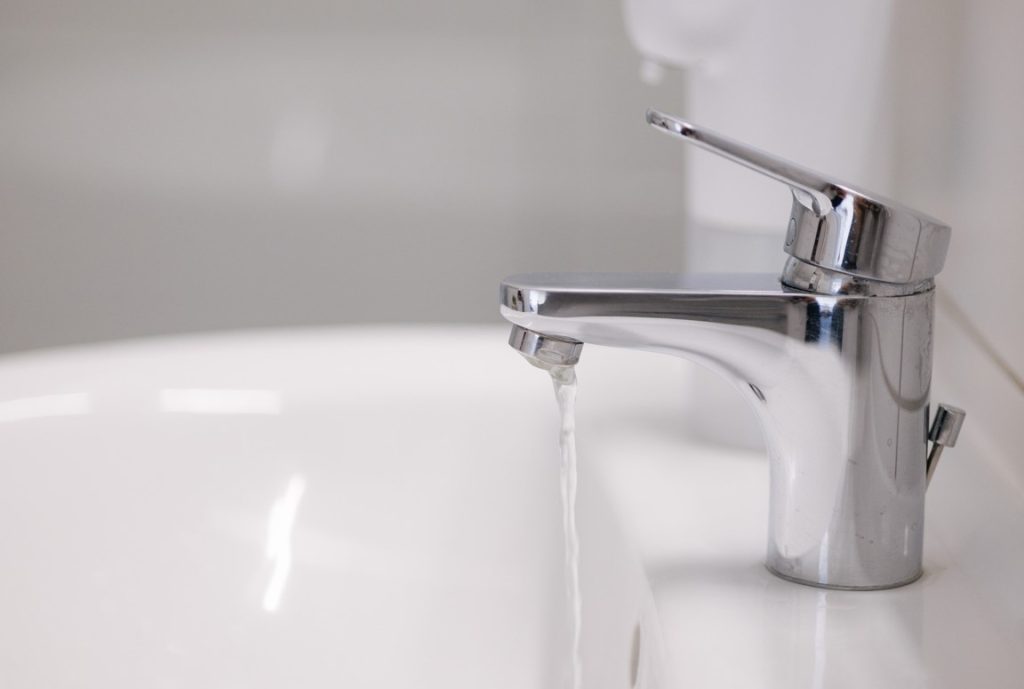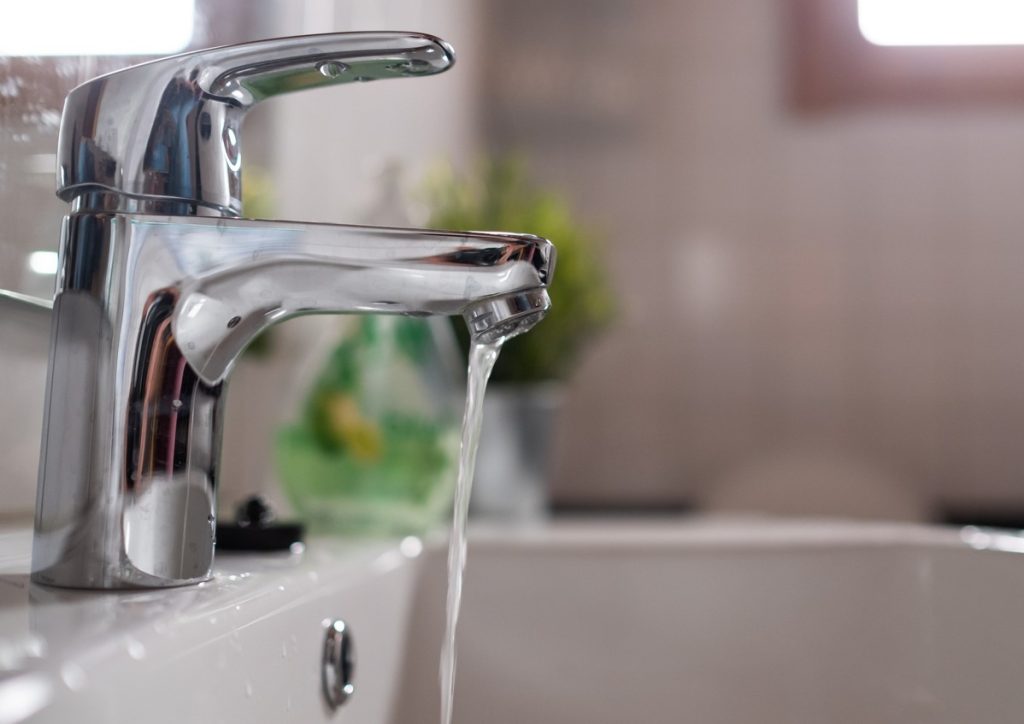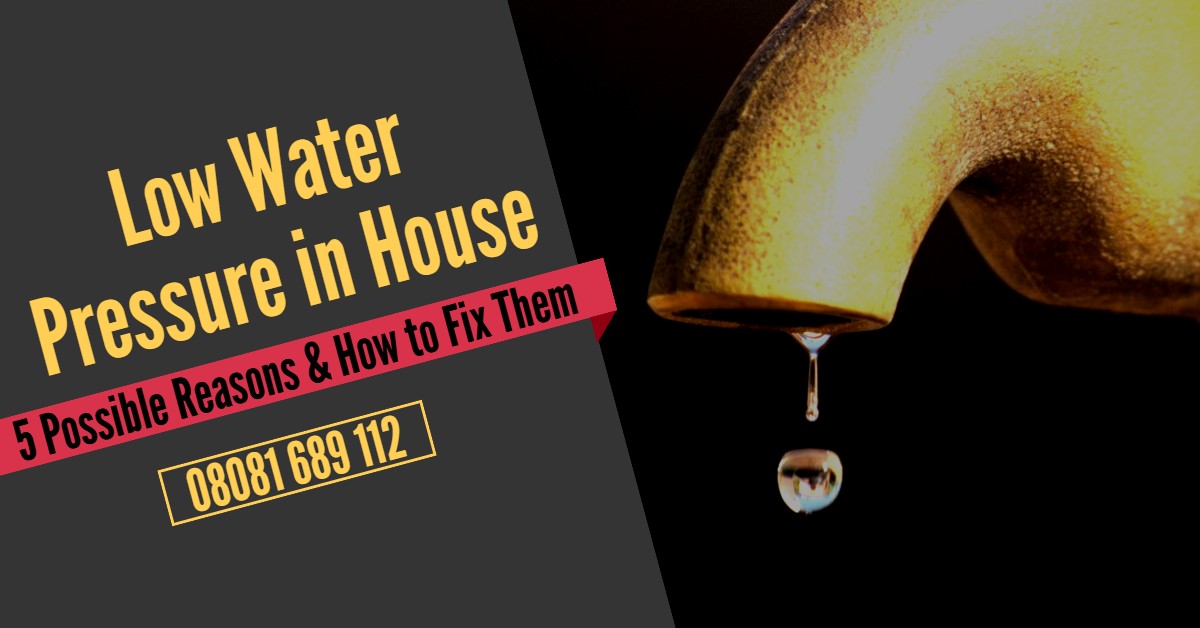Low water pressure at home can make even the simplest daily tasks feel like a chore. From taking an underwhelming shower to waiting an eternity for the washing machine to fill up, low water pressure can disrupt your routine and cause frustration. But before you start imagining costly repairs, it’s important to know that low water pressure often has straightforward causes and simple solutions.
At BDS Drainage, we have years of experience diagnosing and fixing water-related issues for homeowners. With this guide, we’ll walk you through the common causes of low water pressure in your home, how to identify them, and what you can do to fix the issue.
What causes low pressure in your house?
Several factors can lead to low water pressure at home. From issues outside your home to specific plumbing or fixture problems, here are the most common culprits to investigate.
Municipal issues
Sometimes, the root cause of low water pressure isn’t even in your house. Municipal water supply issues, such as pipe damage, water main breaks, or scheduled pipe maintenance, can disrupt water flow to your home. These situations typically affect an entire area, so your neighbours will also notice a drop in pressure.
Underlying plumbing problems
Your home’s plumbing plays a crucial role in maintaining good water pressure. However, issues like corroded pipes, blocked pipes, or malfunctioning pressure regulators can significantly reduce water flow. Additionally, if one of your main water valves is partially closed, it may restrict water flow throughout your house.
Fixture problems
Sometimes, the issue is localised to specific fixtures in your home, like a tap or shower head. Lime scale build-up or clogs in aerators and showerheads can diminish their output, leading to what feels like low water pressure in those specific areas.
Undetected leaks
Water leaks in your plumbing system can silently deplete water pressure. Whether it’s a dripping pipe in the crawl space or an underground leak, the loss of water from the system can make your taps feel weak. You may also notice other signs of leaks, such as water stains, damp patches, pooling water around the cold water tap of your kitchen sink or an unexplained increase in your water bill.
Frozen pipes
During the winter months, frozen pipes can also contribute to low water pressure. When water freezes in pipes, it expands and can block or even burst the pipe, causing a decrease in water flow. If you suspect your pipes may be frozen, it’s important to take immediate action to prevent further damage.
One way to thaw frozen pipes is by using a hairdryer or heating pad on the affected area. However, if you are unsure of how to safely thaw your pipes, it’s best to call a professional plumber for assistance.
How to find out what could be causing low water pressure

Before you call in a professional, it’s worth troubleshooting a little to pinpoint the cause of your water pressure issues.
Here’s how to start diagnosing the problem.
1. Check with your neighbours to see if it is mains water pressure
If your neighbours are also struggling with low water pressure, the issue is likely with the municipal water supply. You might consider contacting your local utility provider for updates on maintenance or repair schedules.
2. Inspect your taps and fixtures
If the low water pressure is isolated to one tap or shower, the problem could be lime scale or a clogged aerator. Remove and have a closer look at these components to check for build-up or blockages.
3. Test your pressure regulator
Homes equipped with a pressure regulator may experience issues if the device isn’t functioning properly. If you suspect a regulator issue, a manual adjustment may temporarily resolve the problem—but professional assistance is often necessary for permanent fixes.
4. Look for leaks
Pay attention to water stains on ceilings or walls, damp or wet areas, and other clues that could indicate a leak. If you suspect an underground leak, keep an eye on your water meter for unusual spikes even when water isn’t in use.
5. Call in the pros
Plumbing and drainage professionals have extensive knowledge and access to specialist equipment such as cameras and leak detectors, making them your best bet for uncovering hard-to-find leaks. They can also provide expert advice on how to fix the issue and prevent future leaks.
6. Check outdoor areas
Don’t forget to check outdoor areas such as sprinkler systems, hoses, and outdoor faucets for leaks or damage. These areas are often overlooked but can also contribute to significant water waste if left unchecked.
How to fix low water pressure in your home

The good news is that many causes of low water pressure can be tackled with a little DIY. Here are some fixes to consider before you call a plumber.
Clean aerators and showerheads
Mineral deposits like lime scale can clog aerators and showerheads over time. Unscrew the aerator or showerhead, soak it in a vinegar solution to dissolve mineral build-up, and scrub it clean before reattaching.
Adjust your pressure regulator
If you have a pressure regulator, try adjusting it to see if that improves water flow. Regulators often come with a screw mechanism that can be turned clockwise to increase pressure. Be careful not to overdo it, as excessive pressure can put stress on your pipes.
Check shut-off valves
Sometimes, a partially closed shut-off valve is the simple cause of restricted water flow. Ensure all main and localised water valves are fully open to allow maximum flow.
When should you call a professional?
While many low water pressure issues can be tackled with DIY solutions, some situations require professional help.
- When DIY solutions don’t resolve the problem
If you’ve tried all the above fixes and the water pressure remains low, the issue could be more complex than it seems.
- Suspected leaks or corroded pipes
Large leaks or corroded pipes require advanced tools and expertise to diagnose and repair. These are not projects you want to take on yourself.
- Municipal water supply issues
If municipal issues persist beyond temporary maintenance schedules, you may need professional advocacy to work with your utility provider.
FAQ
Can low water pressure affect my hot water?
Yes, low water pressure can affect your hot water. Hot water systems, such as water heaters or tankless systems, rely on steady water flow to function properly. If the water pressure is too low, it may reduce the flow of hot water to your fixtures, making it harder to achieve your desired temperature or causing intermittent supply issues.
It’s important to determine whether the low pressure is due to a problem within your plumbing system or an external issue, such as a municipal water supply problem.
Can I use a water pressure booster pump?
Yes, a water pressure booster pump can help improve low water pressure in your home. These pumps are designed to increase the flow and pressure of water traveling through your plumbing system, ensuring an adequate supply to fixtures and appliances.
Booster pumps are especially useful if you live in an area with naturally low municipal water pressure or if your home is located at a higher elevation where gravity reduces the pressure.
Before installing a booster pump, it’s wise to first verify that the low pressure isn’t caused by leaks, blockages, or other plumbing issues within your system, as these should be resolved to avoid further complications. Consulting with a professional plumber can help determine if a booster pump is the best solution for your needs.
How do I know if I have a pressure regulator?
To determine if you have a pressure regulator, check near the main water shut-off valve for your home. A pressure regulator is typically a bell-shaped or cylindrical device installed on the main water line, often accompanied by a water pressure gauge to monitor water pressure. If you are still unsure, you can consult your home’s plumbing diagrams or contact a licensed plumber to help identify whether your system includes a pressure regulator.
Additionally, if your water pressure remains consistently stable, this could be an indication that a regulator is in place and functioning properly.
Can I manually increase water pressure without a regulator?
Yes, it is possible to manually increase water pressure without a regulator, but the methods are limited and depend on the plumbing system in your home. Start by checking for partially closed main water valves or shut-off valves near fixtures, as these can restrict water flow. Ensuring that all valves are fully open may help improve water pressure.
Additionally, cleaning or replacing clogged aerators and showerheads can eliminate buildup that reduces flow. If these steps do not resolve the issue, it may indicate a problem with your municipal water supply or plumbing system, in which case consulting a professional plumber is recommended.
What causes high pressure?
High water pressure can result from a variety of factors. One common cause is a malfunctioning or misadjusted pressure regulator, which is designed to maintain pressure at a safe and consistent level.
Another potential reason is the proximity of your home to the municipal water supply’s main source, as properties closer to pumping stations often experience naturally higher pressures.
Additionally, homes connected to a high-elevation water tank may face increased pressure due to gravity. High water pressure, while sometimes unnoticed, can lead to long-term damage to pipes, fixtures, and appliances, making it important to address promptly.
What is a pressure reducing valve?
A pressure reducing valve (PRV) is a plumbing device that regulates and reduces the incoming water pressure from the main supply pipe to a safe and consistent level within your home. It is installed directly after the main shut-off valve and can help prevent damage caused by excessively high water pressure.
Don’t settle for low water pressure
Low water pressure doesn’t have to disrupt your daily life. By diagnosing the problem and implementing the right solution, you can enjoy a steady and satisfying flow of water again. Whether it’s a simple DIY fix or a complex plumbing issue, addressing the problem quickly can save you time, money, and stress.
If you’re ready to say goodbye to frustrating low water pressure at home, contact BDS Drainage today. Our expert team is only a call away to diagnose, repair, and optimise your water flow.
How BDS drainage can help
At BDS Drainage, we offer comprehensive plumbing inspections and solutions to ensure your home maintains optimal water pressure.
Here’s how we can help:
- In-depth inspections
We’ll carefully inspect your plumbing to identify any issues, including hidden leaks or corroded pipes.
- Leak detection and repair
Our advanced tools allow us to pinpoint and fix leaks efficiently, minimising damage and maximising water pressure.
- Pipe replacement and rehabilitation
Older pipes are prone to corrosion and scale build-up. If needed, we can provide modern replacements designed to improve longevity and pressure.
- Water pressure optimisation services
We offer customised solutions to ensure your water pressure meets the needs of your household.


Leave a Reply